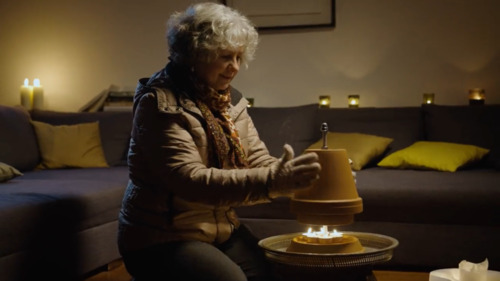High demand and the transition to green power has left much of Europe at risk of blackouts. In Germany, state authorities are teaching the public to heat their homes with candles and get used to “cooking without electricity.”
State authorities in North-Rhine Westphalia will hold their first ‘Disaster Protection Day’ on Saturday, with instructors in the city of Bonn teaching citizens how to get by “in the event of a long power failure.” An advert by the federal Civil Protection Office gives a hint of what’s in store, and features an elderly woman wearing several layers of clothing, heating her apartment with candles burning under an upturned flower pot and sealing her windows with reflective foil.
Was tun bei einem #Totalausfall? Auf dem ersten landesweiten #Katastrophenschutztag geht's ums Thema #Blackout mit viel Programm, Infos und Live-Übungen. Diesen Samstag ab 10 Uhr auf dem #Münsterplatz in @BundesstadtBonn! pic.twitter.com/9M3oja2bjX
— BBK (@BBK_Bund) September 30, 2021
 The Civil Protection Office on Friday unveiled an ad campaign focusing on all aspects of crisis preparation, and will soon release a targeted strategy addressing “stockpiling, extreme weather, power failure and emergency baggage.” Meanwhile, officials will present a new book entitled ‘Cooking Without Electricity’ at the event in Bonn on Saturday.
The Civil Protection Office on Friday unveiled an ad campaign focusing on all aspects of crisis preparation, and will soon release a targeted strategy addressing “stockpiling, extreme weather, power failure and emergency baggage.” Meanwhile, officials will present a new book entitled ‘Cooking Without Electricity’ at the event in Bonn on Saturday.
Based on these official communications, blackouts are coming to Germany soon. While the idea of the world’s sixth-most developed country being unable to power itself may seem ludicrous, the problem is Europe-wide, and is the result of a number of factors.
Germany relies heavily on natural gas for heat and power, and supplies were depleted following an unusually cold winter and spring. Globally, gas markets are tight, with increased demand in Asia and an upsurge in air-conditioner use during a hot summer in Europe driving prices to record highs.
Compounding the problem, wind-power generation fell this year, literally due to a lack of wind in Germany. Coal burning has increased to make up this shortfall, yet the cost of European Union ‘carbon credits’ on this fuel is passed on to consumers, with the end result being a spike in energy costs for ordinary Germans, who already pay the highest price per kilowatt hour in the world.
Both the EU and the German government want to rely more heavily on wind and other renewables for power in the future. The EU’s 2030 plan calls for 32% of all energy to be generated from renewable sources, and while Germany already exceeds this target with 44%, the German government plans on eliminating nuclear power by next year and coal by 2038.
Combined, nuclear and coal account for 39% of all electricity generated in Germany. Unless the country can dramatically expand its renewable sector, and count on the wind to power it, their elimination will likely result in even higher prices, and more ‘Disaster Protection Days’ in the coming years.
The same mismatch of supply and demand, coupled with a costly and unreliable transition to green power, has also been seen in other European countries in recent months.





